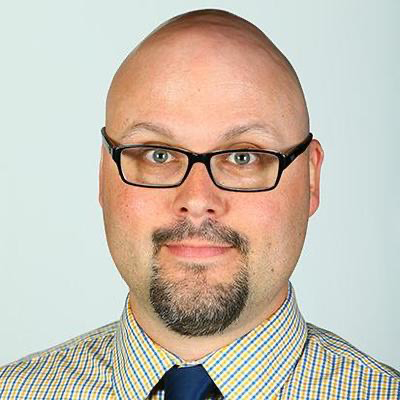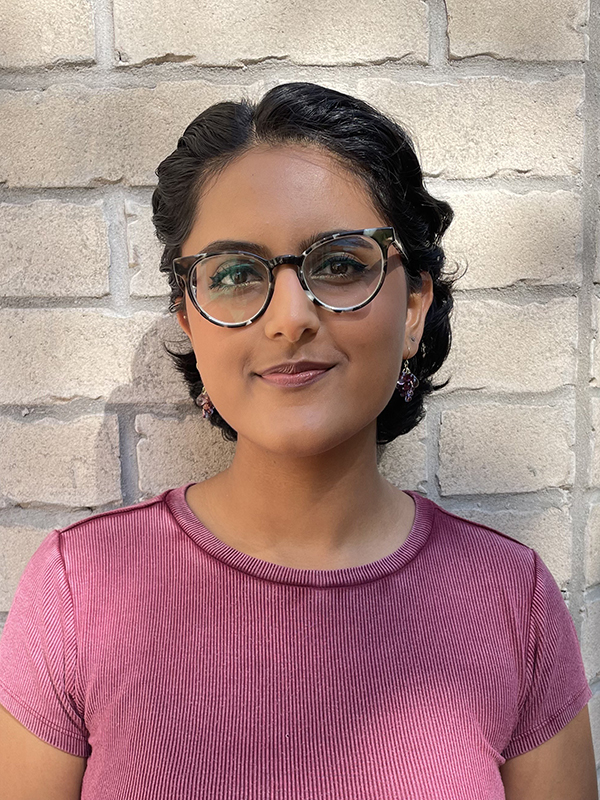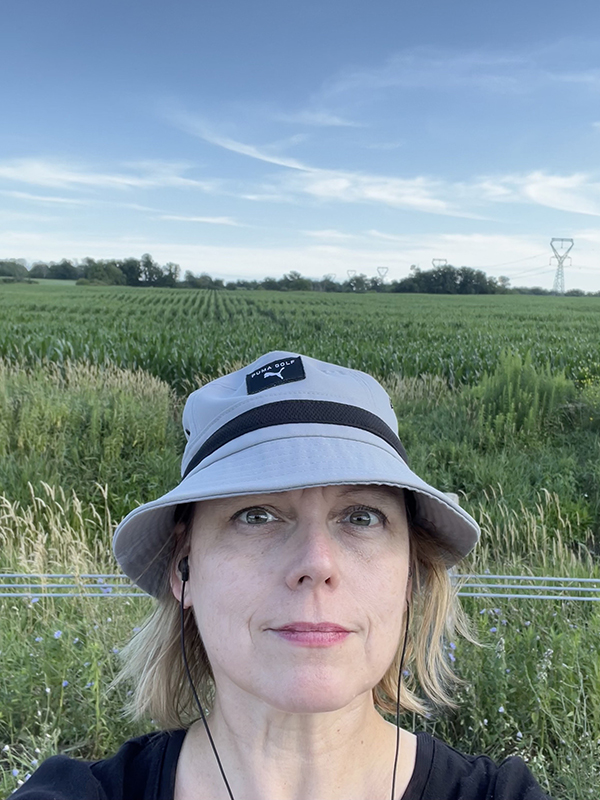Covering the municipal elections: post-pandemic fatigue, finding sources and imposter syndrome
Millions of Canadians are getting the opportunity to vote for the kind of government they want to be running in the cities, towns and villages where many of us live. Municipal elections are taking place in six provinces this year, making for some busy local political journalists.
We asked four alumni covering municipal elections about the challenges of their reporting and what advice they would offer future journalists.

CBC reporter Shawn Jeffords, '03.
Post-pandemic fatigue
Shawn Jeffords, '03, is noting something different about this election.
"This campaign is a little bit quieter than previous campaigns. I think there's a lot of different factors behind that," says Jeffords, a municipal affairs reporter with CBC.
Jeffords says everyone is experiencing post-pandemic lockdown fatigue, with many still re-adjusting to life. It’s the third election in 13 months for Ontario voters after June’s provincial election and last year’s federal election.
"Historically, municipal elections generally tend to have lower voter participation. So when the municipal election cycle comes at the end of the line of elections that we've just had, I think it's probably natural that you would have people a little less plugged into that," says Jeffords.

Dhriti Gupta, '22, a summer fellow for The Local.
The challenge of finding sources
The municipal election was months away when Dhriti Gupta’s put it on her agenda. Gupta ‘22 spent her summer as a journalism fellow with The Local, exploring the compliance audit system (external link) for the municipal election.
Digging into the system that is meant to keep election spending compliant, Gupta says it was a challenge finding sources. They had to be familiar with the compliance system or have used it themselves.
“It's not a system where a ton of people want to talk about their experience because it's also a very politicized system," says Gupta, currently a reporter for the Toronto Star.
"It's about politics. But what I mean when I say that is anyone who was using the system, they had to have had a vested interest in the outcome of the election to be using it. I think sometimes people are cagey about stuff like that. And so that's what I found difficult is to track people down," says Gupta.
To track people who used the compliance audit system, Gupta had to look through a database and find a way to contact them through email. If that is redacted, she will try to find them on social media.

Tara Lindemann, '13, reports for The Grand River Sachem.
"We're the interpreters of what's happening."
During her reporting for this year's municipal election, Tara Lindemann, '15, noticed voters are directing their unhappiness toward governments, resulting in the spread of misinformation.
That’s a challenge for her reporting, Lindemann says. "I consider myself proudly non-partisan in everything I view, and as a person who sees the facts and then openly sees it on a very grassroots like I mean very tangible level."
She also struggles with some voters' lack of knowledge about the role of different levels of government.
"It's either just been lost or wasn't taught properly. I was the nerd who loved that stuff from the get-go. I mean, my dad took me to council meetings because I begged him, you know," says Lindemann.
Lindemann's main advice to aspiring journalism students covering politics is to learn how governments work.
"You're in Toronto. Go to Queen's Park, check it out. You guys are in that area. You've got to! We're journalists, and we're effectively right now the interpreters of what is happening," says Lindemann.

TVO digital media producer John Michael McGrath, '09.
Municipal politics in everyday life
While TVOntario’s John Michael McGrath, MJ '09, is responsible for following elections throughout the province, he says he keeps his eye on things in big cities.
"If something is going badly wrong in Toronto, or Ottawa, or Thunder Bay, or Sudbury or wherever, that makes its way to Queen's Park, and being able to put this stuff in context is helpful. Certainly, as I say, I have some measure of an audience, and I just keep doing what I do," says McGrath, a digital media producer with TVO.
McGrath has a large Twitter following with almost 30 thousand followers (external link) . He says using his platform to keep people engaged in the municipal election has been helpful.
McGrath says that municipal governments have a significant role in daily life.
"I bike to work on roads that are maintained by the city. If I'm not biking, I'm taking public transit maintained by the city. My driver's license is issued by the province. My health card is issued by the province," says McGrath.
McGrath also says that your life is ultimately touched by the municipal and provincial government more so than the federal government, that is, until you cross an international border or board an airplane.
Jeffords says it seems like it’s the simple things that can impact people’s lives that are the responsibility of municipalities.
"That's the thing that, as a reporter, you realize when you're down at city hall. I mean, it's the simple stuff, like, water getting into your home, sewage being removed, the garbage pickup, snow removal," says Jeffords.
Gupta says showing people why municipal politics are essential for everyday life is the focus of a podcast series, "Can't We Do Better" (external link) produced by the Toronto Star.
"I feel like people can find something that they care about in the election that they didn't even know is going to be an election issue," says Gupta.
More advice for young journalists:
From rookie to veteran, these municipal reporters have some advice about how to navigate their careers:
McGrath says journalism students should know that journalism is something you get better at by doing.
"I don't think anybody is expecting you to be an expert on the first day you walk into the newsroom; they are hoping that you will be proactive, right? Volunteering to chase that story, you know," says McGrath.
He also says that he still gets a voice of doubt in his head every once in a while, even after 15 years of school.
"You get better at the job by doing it and shouting down the voice in your brain telling you that you're not good enough, that you're a fraud, that they're all going to discover that you don't belong there," says McGrath.
Lindemann advises aspiring journalists to keep up journalistic standards and stick to the facts to keep doubts at bay.
"Sometimes that does get tricky because, again, you've got a lot of people who spew a lot of nonsense, and they don't like it when you call them out on it," says Lindemann.
Gupta, a reporting intern at the Star, she says she appreciates being paired with a mentor.
She advises young journalists to network as much as possible.
"I think that's something I really love about journalism is that it's really a culture of helping each other," says Gupta.